|
|
|
|
A massive clean-up operation is currently underway in Mauritius to protect the country’s valuable marine ecosystems from an oil spill by the MV Wakashio cargo ship. But questions are now being raised about the island’s preparedness. Christian Bueger, an expert in maritime security, writes that the government was well aware of the risk, having had a similar grounding in 2016, and over the years has received millions to build capacity against
such events. Regional operation centres designed to provide early warning and coordination also appeared to falter. Bueger calls for an independent investigation and has four critical questions that now need to be answered.
In other news, the ruling party in Guinea, the West African country of 1.9 million people, has asked President Alpha Condé (82) to seek a third term when his time in office ends in October. This came soon after Ivorian president Alassane Ouattara (78) confirmed he’d be seeking a third term in office. These developments fly in the face of efforts to promote peaceful changes of government in Africa, and to finally put an end to the practice of presidents for life. Adem K Abede outlines how, over the past two decades, the continent has developed relatively effective ways of ending coups, thus protecting incumbent leaders, but has failed to tackle the problem of imperial presidencies.
|
Jo Adetunji
Deputy Editor
|

|
|
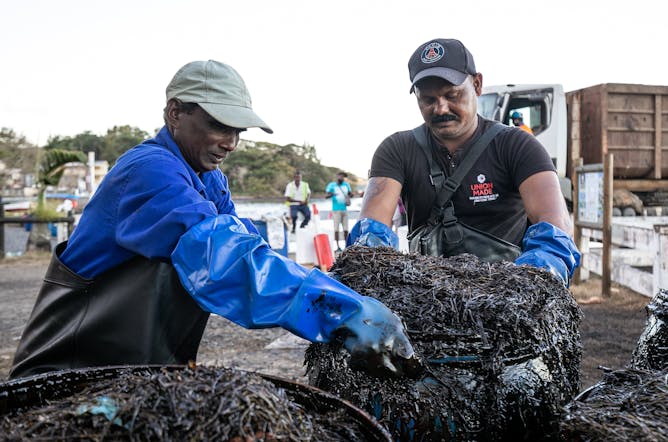
Workers collect seaweed and straw mixed with leaked oil from the MV Wakashio on August 15.
Laura Morosoli/EPA
Christian Bueger, University of Copenhagen
Independent investigations will need to look into potential failures in response to the disastrous Mauritian oil spill.
|
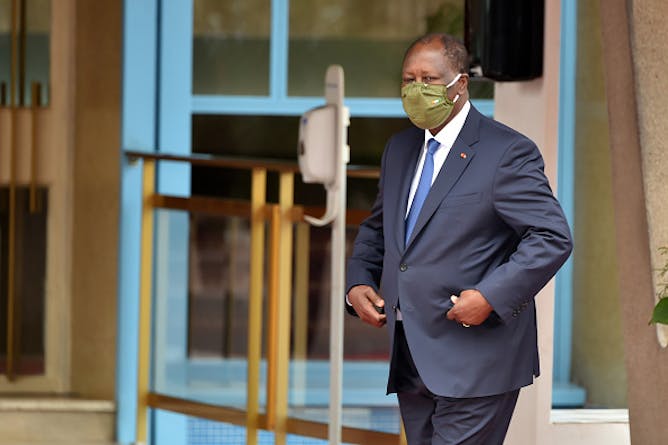
Ivory Coast’s President Alassane Ouattara attends a ceremony to mark the 60th anniversary of the country’s independence from France on August 7.
SIA KAMBOU/AFP via Getty Images
Adem K Abebe, University of Pretoria
African countries need to make a concerted effort to establish a continental two-term policy.
|
Environment
|
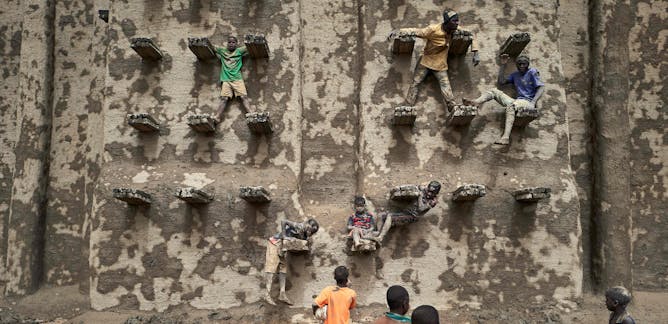
Joanne Clarke, University of East Anglia; Elizabeth Edna Wangui, Ohio University; Grace W. Ngaruiya, Kenyatta University; Nick Brooks, University of East Anglia
The next ten years will be a critical period in which research agendas can be developed.
| |
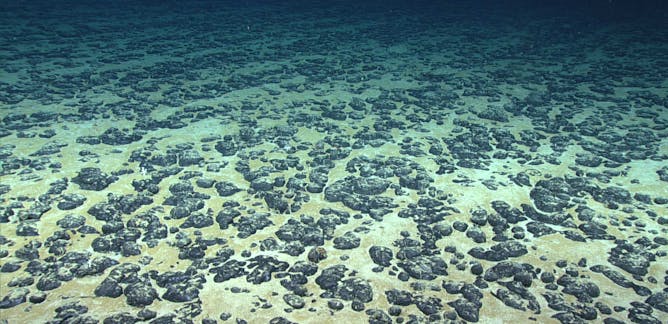
Elizabeth M. De Santo, Franklin & Marshall College; Elizabeth Mendenhall, University of Rhode Island; Elizabeth Nyman, Texas A&M University
Companies are eager to mine the deep ocean for valuable mineral deposits. But scientists are concerned about impacts on sea life, including creatures that haven't even been discovered yet.
|
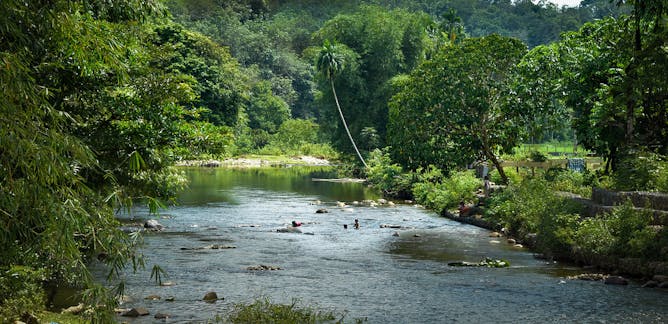
Kate Massarella, Wageningen University; Adeniyi Asiyanbi, University of Calgary
Conservation and development scheme REDD+ has manifested as a series of models, which increases its perceived success and enables it to continue despite not delivering on its wide-reaching promises.
| |
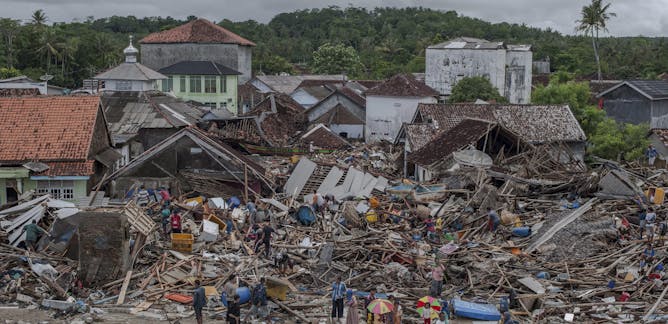
Ryan P. Mulligan, Queen's University, Ontario; Andy Take, Queen's University, Ontario
Massive landslides can trigger destructive and deadly tsunamis, and climate change could make them worse.
|
|
|
Culture + Society
|
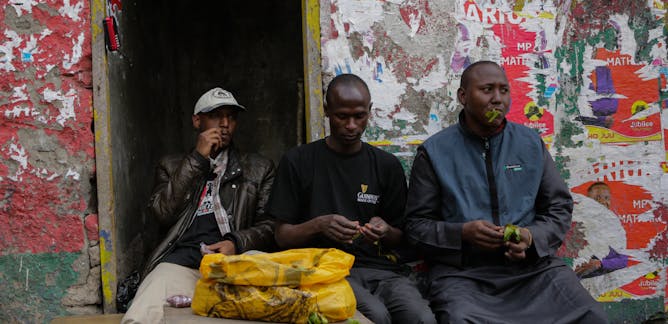
Peter Lockwood, University of Cambridge
Diaries of young Kenyans in Nairobi reveal lives of joblessness and endless searching for money, all punctuated by substance use.
| |
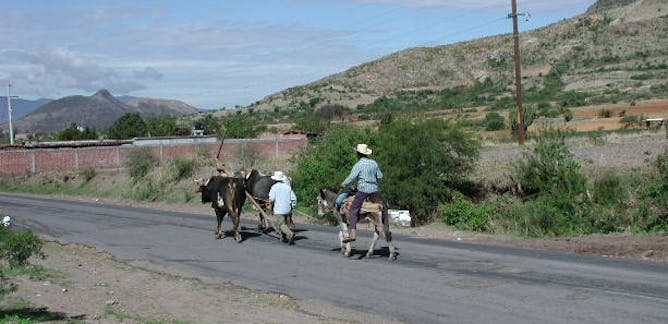
Jeffrey H. Cohen, The Ohio State University
The Zapotec people of southern Mexico have always relied on each other to solve problems when the government can't, or won't, help. That's proving to be a pretty effective pandemic response.
|
|
|
En Français
|

Olga Gille-Belova, Université Bordeaux Montaigne
L’explosion de mécontentement de la population du Bélarus après la récente présidentielle a pris de court l’inamovible dirigeant autoritaire Alexandre Loukachenko.
| |
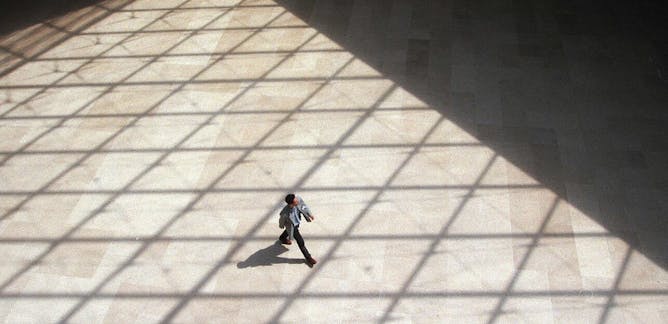
Odile Join-Lambert, Université de Versailles Saint-Quentin-en-Yvelines (UVSQ) – Université Paris-Saclay
Retour sur l’évolution du travail des personnels des musées pendant les « Trente Glorieuses » pour éclairer la situation actuelle.
|
|
|
| |
| |
| |
| |
| |
| |
|
|
|
|
|
|
|